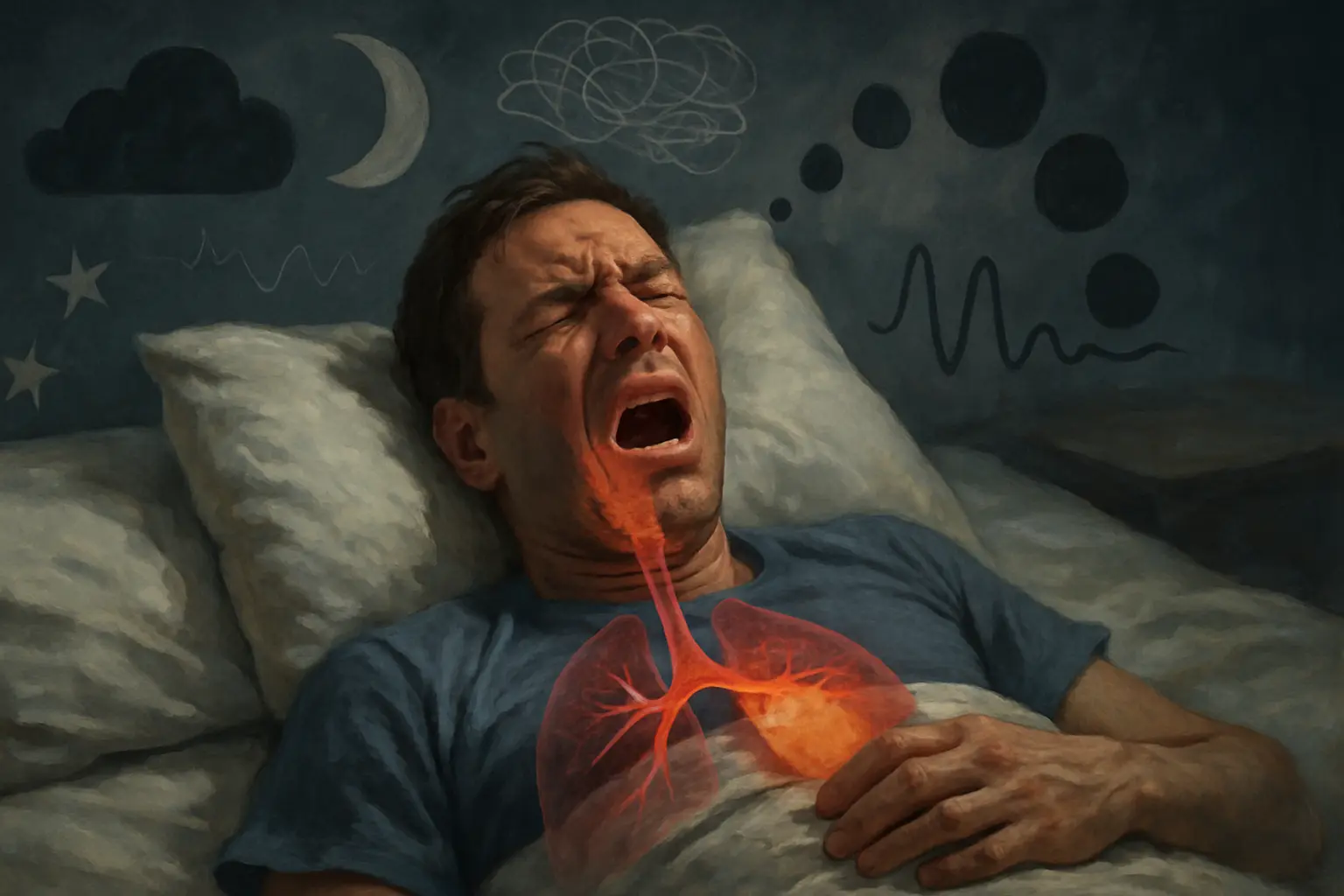Insomnia and Snoring: Can Poor Sleep Quality Worsen Airway Obstruction?
Chronic insomnia not only reduces restorative sleep but can also aggravate snoring and airway obstruction.
Fragmented sleep leads to muscle fatigue in the airway, increasing the likelihood of airway collapse during the night.
How Insomnia Impacts Snoring
- Reduced deep sleep → less muscle tone recovery
- Increased stress hormones → airway inflammation and restlessness
- Fragmented breathing patterns → higher snoring intensity and oxygen fluctuations
SnailSleep AI monitoring shows that insomnia sufferers have 20–30% higher snoring intensity than users with normal sleep duration and quality.
Data Snapshot: Insomnia vs. Snoring Intensity
| Sleep Quality | Avg. Snore Score (0-100) | Deep Sleep % | Oxygen Saturation (%) |
|---|---|---|---|
| Normal sleep | 48 | 23 | 95 |
| Mild insomnia | 56 | 18 | 93 |
| Moderate insomnia | 64 | 15 | 91 |
| Severe insomnia | 71 | 12 | 89 |
Users with severe insomnia also experience more frequent micro-arousals, worsening airway collapsibility.
Physiological Mechanisms
- Airway muscle fatigue → less resistance to collapse
- Inflammatory response → nasal and throat swelling
- Cortisol elevation → fragmented sleep cycles
- Reduced REM and slow-wave sleep → impaired restorative function and daytime fatigue
Strategies to Improve Sleep and Reduce Snoring
- Sleep hygiene improvements — consistent schedule, dark room, cool temperature
- Relaxation techniques — meditation, deep breathing, progressive muscle relaxation
- Cognitive behavioral therapy for insomnia (CBT-I) — clinically proven to improve sleep quality
- Positional therapy for snoring — side sleeping to maintain airway openness
- Monitor sleep patterns — SnailSleep app tracks insomnia severity, snoring events, and oxygen levels
Real-Life Case: Mia's Insomnia Resolution
Mia, 32, struggled with chronic insomnia and moderate snoring.
SnailSleep identified reduced deep sleep stages and frequent snoring episodes.
After implementing sleep hygiene routines, relaxation techniques, and side-sleeping adjustments, her snoring intensity dropped from 62 to 44, and she reported more restorative sleep and increased daytime energy.
Related Articles
- Insomnia and Anxiety: How Worry Steals Your Sleep
- Using Insomnia Self-Assessment to Build Better Sleep Habits
- Using Sleep Self-Assessment Questionnaires to Identify Insomnia

